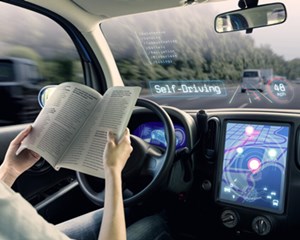As Dr Hawke puts it, "the complexity of most real-world tasks is greater than is possible to solve with handcrafted rules, and it's well known that expert systems built with rules tend to struggle with complexity.
正如霍克博士所说,“大多现实世界任务的复杂性都超出了手工规则所能解决的范围,众所周知,用规则构建的专家系统往往难以解决复杂性问题。”
This is true regardless of how well thought out or structured the formal logic is."
无论形式逻辑的构思或结构有多好都是如此。”
Such a system might, for instance, craft a rule that a car should stop at a red light.
例如,这样的系统可能会制定一条规则,规定汽车在遇到红灯时应该停车。
But lights are designed differently in different countries, and some are intended for pedestrians rather than cars.
但是不同国家的灯光设计不同,有些是为行人而不是汽车设计的。
There are also situations in which you might need to jump a red light, such as to make way for a fire engine.
在某些情况下,你可能需要闯红灯,比如给消防车让路。
"The beauty of machine learning", Dr Hawke says, "is that all these factors and concepts can be automatically uncovered and learned from data.
“机器学习的美妙之处在于,”霍克博士说,“所有这些因素和概念都可以从数据中自动发现和学习。
And with more data, it continues to learn and become more intelligent."
有了更多的数据,它就会继续学习,变得更聪明。”
Nicholas Rhinehart, who studies robotics and AI at the University of California, Berkeley, also backs machine learning.
加州大学伯克利分校研究机器人技术和人工智能的尼古拉斯·莱茵哈特也支持机器学习。

He says Dr Bhatt's approach does indeed show you can combine the two approaches.
他说,巴特博士的方法确实表明可以将这两种方法结合起来。
But he is not sure it is necessary.
但他不确定是否有必要。
In his work, and also that of others, machine-learning systems alone can already predict probabilities a few seconds into the future— such as whether another car is likely to give way or not—and make contingency plans based on those predictions.
在他和其他人的研究中,仅靠机器学习系统就已经能够预测未来几秒钟的事件发生的概率——比如另一辆车是否会让路——并根据这些预测制定应急计划。
Dr Bhatt responds that you can train a car with data accumulated over millions of kilometres of driving, and still not be sure you have covered all the necessary situations.
巴特博士回答说,你可以用积累了数百万公里行驶里程的数据来训练一辆汽车,但仍不能确定是否已经涵盖了所有必要的情况。
In many cases, it might be simpler and more effective to program some of the rules in from the start.
在许多情况下,从一开始就把一些规则编写进去可能更简单,也更有效。
For champions of both strategies, the question goes beyond self-driving cars to the future of AI itself.
对于这两种策略的支持者来说,问题不仅仅是自动驾驶汽车,而是人工智能本身的未来。
"I don't think we're taking the right approach right now," Dr Marcus says.
“我认为我们现在没有采取正确的方法,”马库斯博士说。
"(Machine learning) has proven useful for some things like speech recognition, but it's not actually the answer to AI. We haven't really solved the intelligence problem."
“(机器学习)已经被证明在语音识别等方面很有用,但它实际上不是人工智能的解决方案。我们还没有真正解决智能问题。”
One way or another, then, it seems seven-month-olds still have a lot to teach machines.
无论孰是孰非,看来机器还需向7个月大的婴儿学习很多东西。
译文由可可原创,仅供学习交流使用,未经许可请勿转载。












